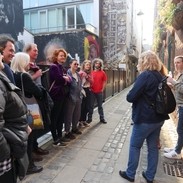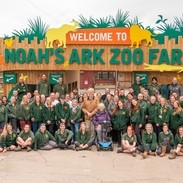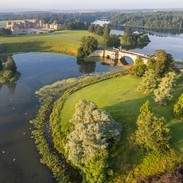VisitBritain/Diensen Pamben

Better Business case study: Holkham Hall

You must accept "Targeting" cookies from in order to watch this video, as YouTube automatically sets cookies of this type.
“Our approach to sustainability has no doubt future-proofed our business…We need to manage the visitors and the landscape, so that it’s still here in the same family in 400 years’ time.”
Sue Penlington, Sustainability Manager
Business benefit: Get fit for the future
The twin challenges of biodiversity loss and climate change have reinforced sustainability as a top priority in safeguarding the future of this historic 25,000-acre estate. Holkham Hall’s WONDER strategy places sustainability at the core of every business decision and guest experience. Careful impact measurement and progress monitoring is essential to working towards their goals to become carbon negative by 2040. They also aim to increase the quality of natural capital (assets such as soil, air and water); cut the amount of waste produced and protect the area’s rich biodiversity (for example birds, bees, butterflies, bats, plants, woodland, hedges and scrub, long into the future.
Holkham has a team of experts in conservation, farming and forestry, as well as an in-house data analyst and a sustainability manager. Carbon audits and biodiversity measurement have helped the team identify the business’ main environmental impacts. Crunching the numbers on carbon and waste helps set a baseline, so that they can see where they’re making progress and target efforts on areas needing more work.
Starting small with behaviour changes and progressively expanding initiatives such as investing in renewable energy and technology such as air and ground source heat pumps, biomass boilers and anaerobic digestion, allows for incremental progress, adding up to significant shifts over time as well as cutting operational costs. The estate isn’t only reducing its impacts but making positive contributions too. Any new projects are run through the WONDER wheel, a bespoke auditing tool. It enables the team to benchmark and measure the impacts of any new development (whether a large new construction, car park resurfacing or hedge replanting) on aspects such as biodiversity or water quality, with the aim of ensuring that they are being enhanced and not diminished.
VisitBritain/Diensen Pamben

“Visitors have told us that as they arrive onto the Holkham Estate, they notice the landscape change. Whereas people used to come to Holkham to see the historic house, we now have people coming to appreciate the landscapes, learn more about what we’re doing in terms of WONDER, and that’s brilliant to see.”
Lucy Downing, Head of Marketing
Business benefit: Environmental responsibility boosts staff and customer appeal
Holkham Hall’s commitment to sustainability also broadens its appeal to visitors. Their approach also leads to a more enjoyable and beautiful place to spend time, creating a feel-good factor for visitors. Sustainability is a tangible part of the guest experience, from nature walks to field to fork dining experiences, strengthening the estate’s customer appeal.
Getting staff involved in sustainability is essential to making changes stick. Holkham Hall’s ‘WONDER Crew’ of staff are fully engaged too; Holkham’s alignment with sustainability values is crucial in attracting and retaining staff who want to work for a business that aligns with their values. Sustainability training, WONDER workshops, and an engaging workplace culture fosters a passionate and committed team who use the employee app to suggest #wonderwins and play an enthusiastic part in contributing to the business’ sustainability goals.
Find out more on the VisitEngland Business Advice Hub:
Taking your next steps - Low cost, low carbon switches for your business
Incorporating care for the local environment into your business can enhance your appeal to customers while creating ways for them to leave a positive impact. Here are some tips to help strengthen their connection with nature:
Design your visitor offer to have a low footprint: Make sure that the experiences or guidance you offer guests don’t encourage behaviours that can be damaging or add to problems such as overcrowding.
Design experiences with nature in mind: Celebrate the natural environment by creating meaningful, mindful experiences for your guests. For example, if your business has great views you could introduce a sunset gazing hour inviting all your guests to have a drink and enjoy the sunset and the beauty of the area around your property.
Promote rejuvenation and the power of reconnecting with nature: With wellbeing an important consideration for many, you can use the rejuvenating powers of nature to encourage guests to engage with the environment in mindful ways, such as nature walks, stargazing or forest bathing.






